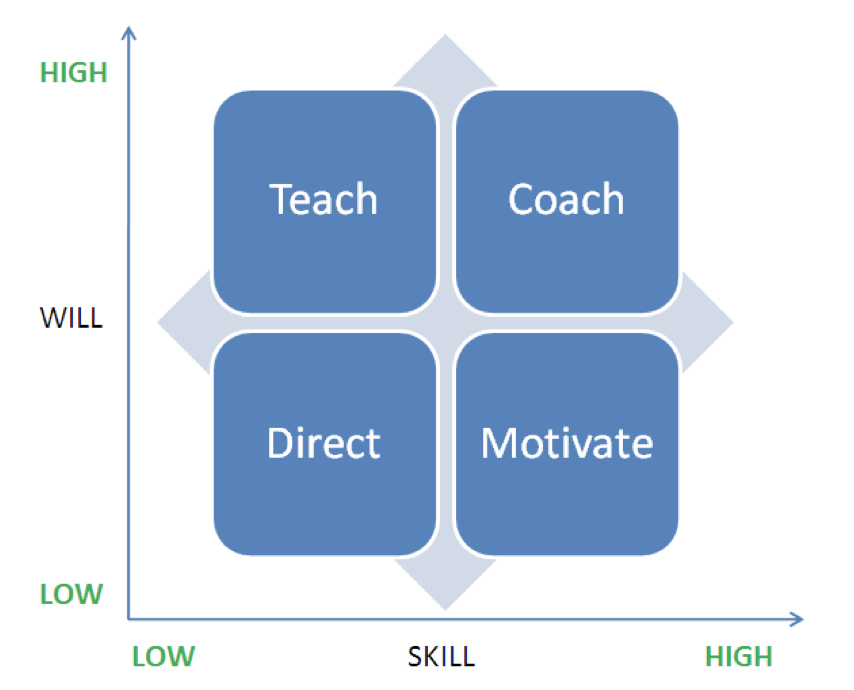Words, Ideas, StuffSome ideas and thoughts, captured with the view to help you.
|
 In any situation where you are reliant on others to achieve a desired outcome, understanding their capability and attitude in relation to their responsibilities will pay dividends. A simple tool for doing this and giving you guidance on the best management or influencing style to guide your colleagues to success is the “Skill/Will matrix” which was introduced by Max Landsberg in his book, The Tao of Coaching. Using your experience and perception, you evaluate people on two dimensions – willingness to achieve the task and capability or skill to do so. Your evaluation includes assigning a high or low score on each dimension and then plotting this on a matrix (see image below). Depending on which quadrant on the matrix they are assigned, guidance on the appropriate management style to achieve success is given. It’s important to note that people are rarely in one quadrant all the time, it is task and context specific. Also that your perception of their willingness or capability may be distorted from previous experience so if you’re unsure, a quick coaching discussion with lots of open questions for them to articulate their view and skills would be beneficial. The two dimensions are: Skill: Experience with the task, training, knowledge, and natural talents. Will: Desire or achieve, incentives to do task, security surrounding job, confidence in abilities, and feelings about task ("attitude") If you are evaluating a team of people, you can plot them all on the same matrix but be sure to review and update this as the tasks, responsibilities and business environment changes. These are the recommended management styles for people within each section of the quadrant: DIRECT (when both skill and will are low) When the person being evaluated has low will and low skill, there is a need to develop both and to provide clear instruction and close supervision. To achieve this, Landsberg recommends taking the following three actions in order: First, build the will through providing a clear briefing and outcomes likely, both professional and personal Second, develop the skill. Work with them to create a plan to up-skill. Formal training or mentoring may work best here. Thirdly, sustain the will through relevant feedback both positive and constructive – ensure it is timely and specific. TEACH (low skill, high will) This one is self explanatory in that you need to support them to build their skill set. Traditional methods of training work well but don’t be limited by that, consider buddy systems, mentoring, online learning as well. As they’ve got the drive to do the task you’ll likely find they’ll embrace the chance to build capability. MOTIVATE (high skill, low will) This person needs to understand what’s in it for them. You need to work with them to understand what their motivators are – what drives them, excites or inspires them, what they hope to achieve or wish to avoid, and relate these to the task at hand. Keep them updated with progress and ensure you make the feedback relevant to them. It is also worthwhile understanding if there are any road blocks for them as this may be the cause of the low willingness. COACH (high skill, high will) These are usually the star performers but just because they’re on their game, don’t go with the temptation to leave them alone to get on with it – everyone needs support and feedback. Engage them in coaching discussions where you are a sounding board for them, and assist them to determine the best course of action. You can also increase their level of responsibility and delegate if possible to aid their development. In summary, most people want to give their best and do a good job so this is a quick and easy diagnostic to aid you to determine what may be holding people back or what you can do to ensure their own, and your, success. Here's a Visual Summary of Max Landsberg's Skill Will Matrix:
0 Comments
Your comment will be posted after it is approved.
Leave a Reply. |
Categories
All
AuthorMelissa Davies Archives
January 2024
|


 RSS Feed
RSS Feed